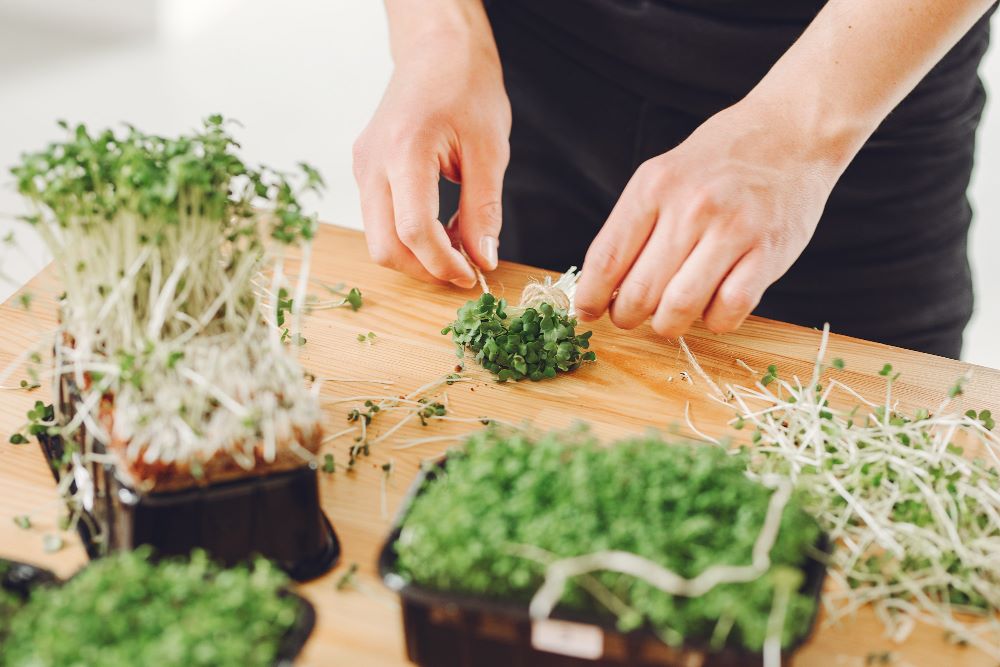The art of growing herbs at home is a delightful, rewarding journey that begins with a single seed. Whether you’re a seasoned gardener or a complete novice, the joy of cultivating your own fresh, fragrant herbs is unparalleled. This beginner’s guide aims to navigate you through the process of growing herbs both indoors and outdoors. From understanding your space to choosing the right herbs, and from planting to harvesting, you’ll learn all the essentials to set up your very own herb garden.
Understanding Your Space
The first step in your herb gardening journey is understanding your space. Herbs are versatile plants and can be grown in a variety of settings, both indoors and outdoors.
Outdoor herbs generally need a spot with six to eight hours of sunlight each day, while indoor herbs can thrive with ample sunlight, but there are options for lower light conditions as well. Apart from light, consider the temperature and humidity of your space. Most herbs prefer cooler temperatures at night and warmer ones during the day. Indoor spaces might need additional humidity, especially during colder months when indoor heating can dry out the air.
Tips for maintaining physical and cognitive health in older adults
Choosing Your Herbs
There’s a vast array of herbs to choose from, but as a beginner, it’s best to start with easy-to-grow varieties. Basil, parsley, chives, rosemary, and mint are all excellent choices.
Basil thrives in well-drained soil and full sun, making it a great choice for outdoor gardens. Parsley, a biennial herb, can grow in both full sun and partial shade. Chives are a perennial herb that enjoys full sun and well-drained soil. Rosemary, a perennial shrub, prefers full sun and well-drained soil. Mint is a hearty perennial that can thrive in both full sun and partial shade.
Planting Your Herbs
Planting your herbs properly can make all the difference in their growth. For outdoor planting, consider using raised beds or pots, which offer good drainage and easy access for care.
For indoor herbs, pots or containers with drainage holes are essential. These can be placed on windowsills, under grow lights, or in any spot that receives plenty of sunlight.
Always use high-quality potting soil for your herbs. Some herbs, like rosemary or thyme, prefer a sandier soil mix, while others, like basil or parsley, prefer a richer, loamier soil.
When planting your herbs, make sure they have enough room to grow. Herbs grown for their leaves can be planted closer together, but those grown for their seeds or roots need more space.
Tips for Staying Active in Older Adults
Caring for Your Herbs
Taking care of your herbs is crucial for their growth and development. Herbs need regular watering, but it’s important not to overwater. As a general rule, allow the soil to dry out between waterings.
Both indoor and outdoor herbs will benefit from regular pruning to promote bushier growth and prevent flowering, which can affect the taste of the herbs.
Fertilizing your herbs can also help boost their growth. Use a balanced, organic fertilizer and follow the package instructions for application rates and frequencies.
Harvesting Your Herbs
The moment of harvest is one of the most rewarding parts of growing your own herbs. Most herbs are ready to harvest just as they start to flower, known as the “budding stage.”
Always harvest in the morning, when the plant’s oils are at their peak, for the most potent flavor. Use a sharp pair of garden shears# Assistant needs to continue the response, as it was cut off.
Benefits of Growing Your Own Herbs
Growing your own herbs isn’t just a fun hobby—it also has numerous benefits. Fresh herbs are more flavorful than dried ones and can take your cooking to new levels. Plus, tending to your herb garden can be a therapeutic way to connect with nature and reduce stress.
Troubleshooting Common Problems
Even with the best care, you might encounter some issues with your herbs. Overwatering is a common problem that can lead to root rot. If your herbs’ leaves are turning yellow or wilting, try reducing your watering.
Inadequate light can lead to leggy plants, while too much light can scorch the leaves. Adjust your plants’ location or lighting as needed to keep them healthy.
Pests can also be a problem, especially for indoor herbs. Keep an eye out for common pests like aphids or spider mites and use an organic pesticide if necessary.
Conclusion
Growing your own herbs at home, whether indoors or outdoors, is a rewarding endeavor. With patience and care, you can enjoy a bountiful harvest of fresh, flavorful herbs right at your fingertips. So why not get started today? Happy gardening!







